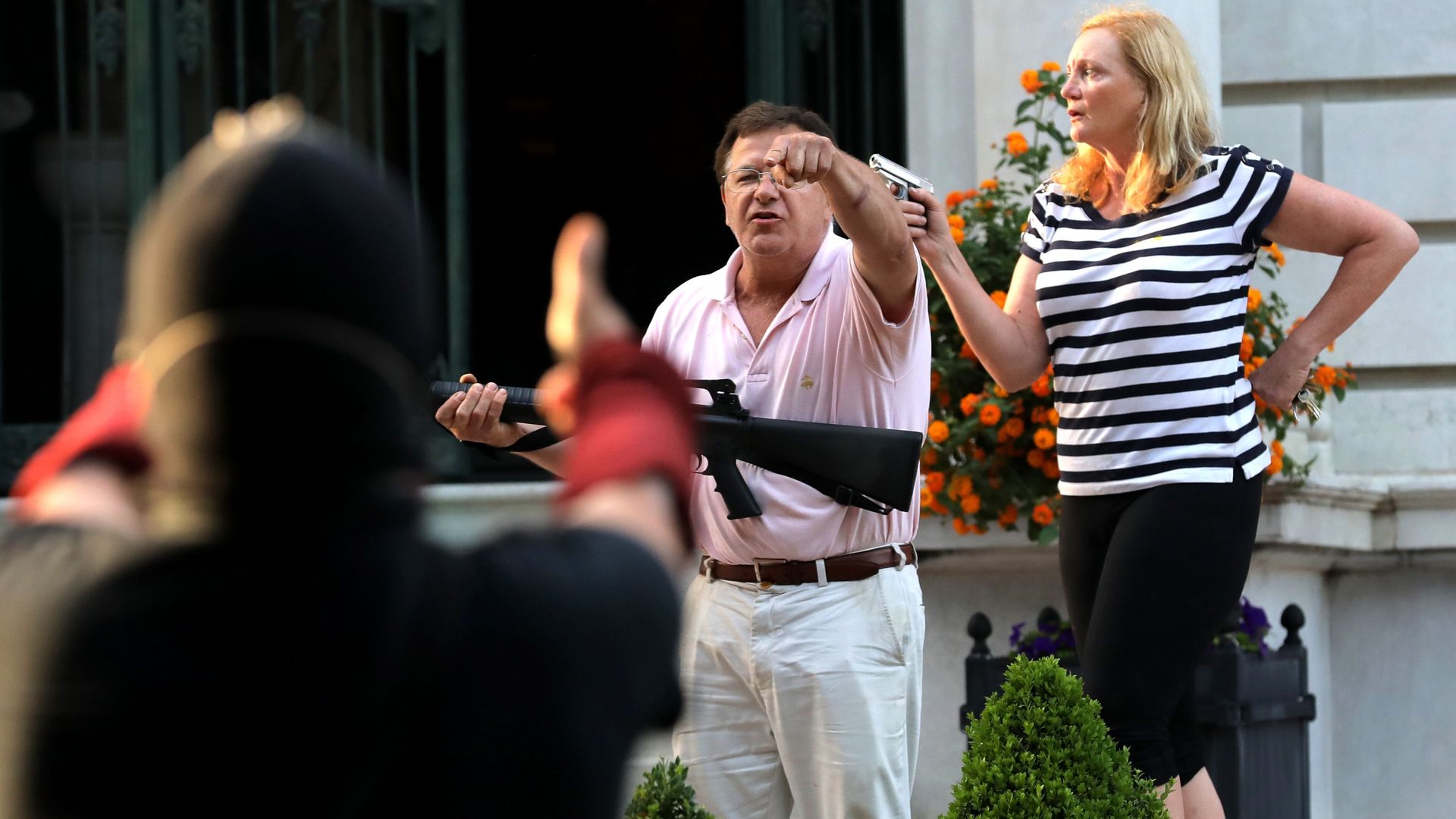McCloskeys endorse Trump at RNC
Add Axios as your preferred source to
see more of our stories on Google.

Laurie Skrivan/St. Louis Post-Dispatch via AP File
Mark and Patricia McCloskey, attorneys charged with felony unlawful use of a weapon after they pulled guns on anti-racism protesters outside of their mansion in June, spoke at the Republican National Convention on Monday.
Why it matters: The McCloskeys argued that Black Lives Matter protesters and liberal radicals would "abolish the suburbs all-together" if they gained power in "Joe Biden's party" — boosting President Trump's campaign effort to stoke fears of lawless cities and an end to what he's called the “Suburban Lifestyle Dream.”
What they're saying: "Whether it’s defunding the police, ending cash bail so criminals can be released back out on the streets the same day to riot again, or encouraging anarchy on our streets, it seems as if Democrats no longer view the government’s job as protecting honest citizens from criminals, but rather protecting criminals from honest citizens," Mark McCloskey said.
- "The radicals are not content just marching in the streets. They want to walk the halls of Congress. They want power. This is Joe Biden’s party. These are the people who will be in charge," he added.
- "Patty McCloskey said, "They are not satisfied with spreading the chaos and violence into our communities, they want to abolish the suburbs all-together by ending single-family home zoning.
- "At this moment in history, if you stand up for yourself and for the values our country was founded on, the mob — spurred on by their allies in the media — will try to destroy you."
Reality check: Democrats have no plans to end single-family home zoning or abolish suburbs.
Between the lines: The Trump administration has rescinded the Affirmatively Furthering Fair Housing rule, an Obama-era policy aimed at curbing discriminatory housing practices and racial segregation, Axios' Kim Hart writes.
Background: The suburbs were two-thirds white as of the 2010 Census, down from 81% the decade before, and since then the suburbs have continued to diversify, Axios' Margaret Talev reports.
- Suburban diversification has taken place along with population growth.
- By the end of 2016, the Pew Research Center says, about 175 million Americans lived in suburbs and small metro areas — more than the 98 million in urban cores and 46 million in rural counties.
Go deeper: President Trump's suburbs
